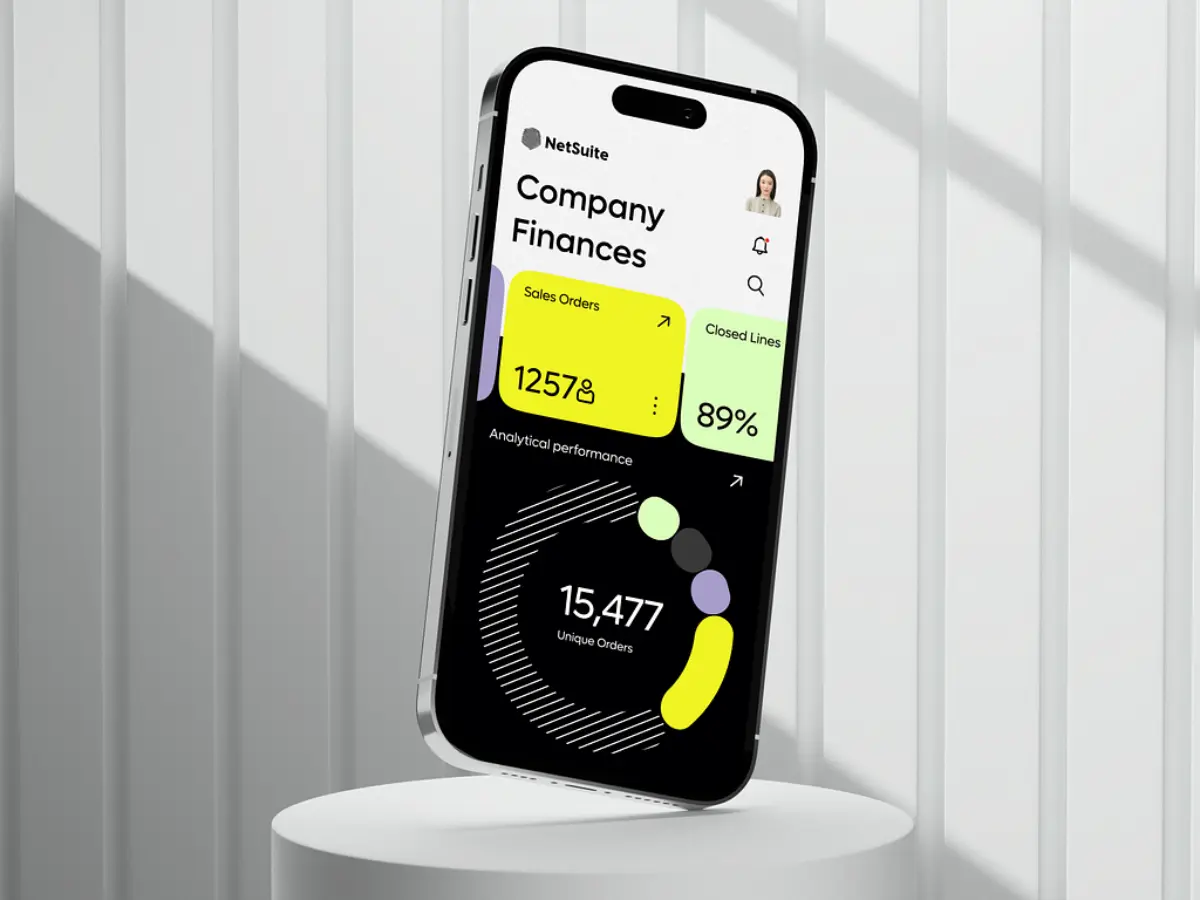10 Most Important Use Cases of Medical AI Chatbot in 2025
- TECHVIFY Team
- 0 Comments
In most industries, creating and deploying a chatbot is straightforward. However, the process is more complex for healthcare and pharmacies due to the sensitive nature of patient information, diagnoses, prescriptions, and medical advice. Any mistakes made by a chatbot in these areas can have serious consequences.
It’s noteworthy that 52% of patients in the USA acquire their healthcare data through chatbots. Chatbots are only as intelligent as we train them to be, making the “teaching” process critical for effective patient interaction.
So, how can healthcare centers and pharmacies incorporate medical AI chatbot without compromising patient information and care? In this blog, we’ll explore use cases that you can start implementing with AI chatbot for healthcare to enhance your services.
I. Medical AI chatbot definition
An AI healthcare chatbot is a software application that employs artificial intelligence to mimic conversations with users for healthcare-related communication, employing natural language processing to interpret and respond to queries.
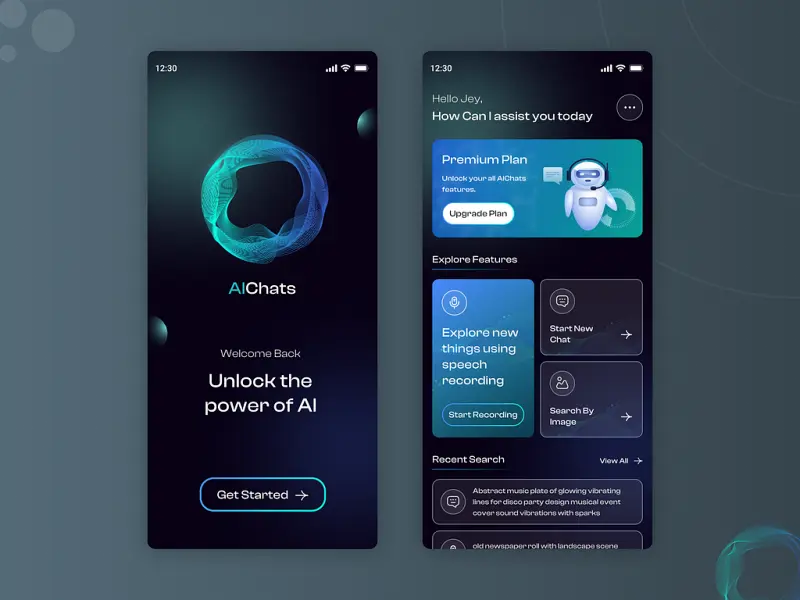
Medical AI Chatbot
II. Advantages of Chatbots in Healthcare
The implementation of chatbots in healthcare offers numerous benefits. Here are some key advantages worth noting:
Round-the-Clock Availability
Medical personnel can’t always be available, but emergencies and patient needs can arise at any time. Chatbots provide constant availability, assisting patients with tasks ranging from symptom recognition to scheduling procedures.
Data Collection and User Engagement
Healthcare requires empathy and personalized care. Chatbots can gather data by asking relevant questions, helping to tailor patient experiences and improve future business processes. They can answer more questions than a static website, offering a personalized touch.
Serving Multiple Patients Simultaneously
Healthcare professionals can provide one-to-one care, which limits their reach. In contrast, chatbots can engage with multiple patients simultaneously without compromising the quality of information or interaction. They facilitate communication through phone calls, video calls, messages, and emails, freeing medical staff to focus on patients who need more attention.
Instant Access to Information
In healthcare, timing is crucial. Chatbots can quickly provide essential information, such as a patient’s history, conditions, allergies, and check-up details, which is vital during emergencies when every second counts.
Learn More On:
III. 10 Use Cases of Medical AI Chatbot That are Changing the Industry
Here are ten ways chatbots are making a significant impact on the healthcare sector:
1. Streamlining Appointment Scheduling
One of the most commonly performed tasks in healthcare is scheduling appointments. Many patients find using traditional applications challenging due to slow performance and complex information requirements.
Patients who face long wait times often cancel appointments or switch healthcare providers. Chatbots offer an effective solution to this issue. Visitors can quickly access a chatbot through a message interface on a website or app.
An efficiently crafted healthcare chatbot can arrange appointments according to a doctor’s availability. Additionally, chatbots can be integrated with CRM systems to help medical staff track patient visits and follow-up appointments, ensuring that data is readily accessible for future use.
AI-powered healthcare chatbots can gather and process co-payments to make the process even more efficient.
2. Providing Essential Medical Information
Healthcare chatbots are trained using extensive datasets that include information on disease symptoms, diagnoses, indicators, and potential treatments. Public datasets like the Wisconsin Breast Cancer Diagnosis (WBCD) and COVIDx for COVID-19 diagnosis are commonly used for this purpose.
This training enables healthcare chatbots to understand user questions and provide responses based on the predefined labels in their training data.
This allows users to save time and avoid the hassle of visiting a clinic or doctor. Users can receive a nearly accurate diagnosis from these chatbots by inputting a small amount of information.
3. Checking Symptoms
Chatbots are increasingly being used to analyze a patient’s symptoms and determine their medical condition without requiring a hospital visit. By developing chatbots based on Natural Language Processing (NLP), these systems can interpret a variety of patient inputs accurately. NLP enhances the precision of responses, which is crucial when examining symptoms.
These chatbots can use the gathered information to help patients identify the illness responsible for their symptoms based on predefined inputs. Patients can determine the necessary level of treatments and medications with the interactive bot and the data it provides.
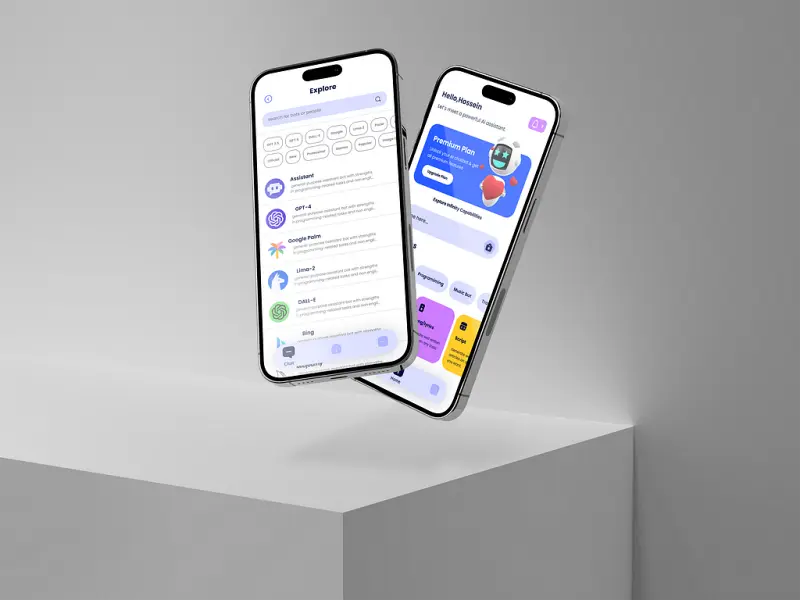
AI chatbot for healthcare
4. Coverage and Claims
Chatbots can be trained to assist patients with their insurance claims, providing an easy way to access pertinent information. Whether patients need to verify their current coverage, file a claim, or track the status of an existing claim, a healthcare chatbot streamlines the process.
This also benefits doctors by facilitating quick access to patient information and queries, enabling the pre-authorization of billing payments and other requests from patients or healthcare authorities.
5. Instant Response to Queries
The Frequently Asked Questions (FAQ) section is a common feature on many websites. Chatbots can effectively handle simple questions such as:
- What are the institution’s working hours?
- What paperwork is required for a specific treatment?
- What are the costs for the payment plan?
- How much of the price will be covered by insurance?
For more serious issues, patients can use chatbots to contact a doctor. Acting as a one-stop shop, healthcare chatbots can respond instantly to any general query a patient might have.
Several healthcare service companies are enhancing their FAQs by incorporating interactive healthcare chatbots to answer common questions. This enables users to find answers quickly, improving the overall user experience.
6. Efficiently Gathering Patient Information
One of the primary applications of healthcare chatbots is the efficient gathering of patient information. Through simple inquiries, chatbots can collect essential details such as the patient’s name, address, phone number, symptoms, current doctor, and insurance information. This data collection simplifies patient admission, symptom tracking, direct communication with patients, and the maintenance of medical records.
7. Streamlining Prescription Refills
Automating medication refills is a significant benefit of chatbots in the healthcare industry. Due to the overwhelming paperwork in many doctors’ offices, patients often face long waits to refill their prescriptions, wasting valuable time. Chatbots can streamline this process by checking with pharmacies to see if prescriptions have been filled and sending notifications when they are ready for pickup or delivery.
This automation allows doctors to focus more on patient care rather than administrative tasks like calling pharmacies and waiting for responses. It also keeps patients updated about their upcoming medical appointments and medication schedules, ensuring they do not miss doses or become confused about their prescriptions.
8. Delivering Mental Health Support
Healthcare chatbots are increasingly being used to provide medical assistance for patients with conditions such as depression, PTSD, and anxiety. These chatbots are trained to deliver cognitive behavioral therapy (CBT) and can even help autistic patients improve their social skills and succeed in job interviews. Users can interact with chatbots via text, microphones, and cameras, making access to mental health support more convenient.
An example of a chatbot excelling in this area is Woebot, which offers CBT, mindfulness, and dialectical behavior therapy (DBT), and is considered among the most efficient chatbots in the mental health sector.
Have a Healthcare Project Idea in Mind?
Get in touch with experts for a free consultation. We’ll help you decide on next steps, explain how the development process is organized, and provide you with a free project estimate.
9. Promoting Wellness Programs
One critical aspect of the healthcare industry is increasing enrollment in various programs. Medical chatbots serve as an excellent tool for healthcare organizations to raise awareness and boost enrollment.
A well-designed healthcare chatbot equipped with natural language processing (NLP) can use sentiment analysis to understand user intent. By interpreting human input accurately, the chatbot can recommend suitable healthcare plans, thus aiding in the promotion and adoption of wellness programs.
10. Scalable Support for Peak Hours
One of the primary needs of any business, especially in the healthcare sector, is the ability to scale support during peak hours. Managing this surge with the same support system can be a significant challenge when traffic unexpectedly increases.
Without scalable solutions, organizations might face the need to hire more medical professionals and conduct extensive training sessions. However, by integrating a healthcare chatbot into your customer support system, you can address these issues and provide the scalability needed to handle real-time conversations effectively.
Healthcare chatbots enhance corporate productivity by managing increased interactions without incurring additional costs or requiring more staff.
IV. Potential Challenges When Implementing AI Chatbots in Healthcare
Handling Simple Queries Only
Medical AI chatbots should primarily manage simple queries. While they can provide conversational and human-like responses, it is too risky to trust AI to deliver medical advice or address complex questions. AI chatbots are best suited for handling straightforward tasks such as answering FAQs, scheduling appointments, and providing basic information about services. This approach minimizes the risk of errors and ensures patient safety.
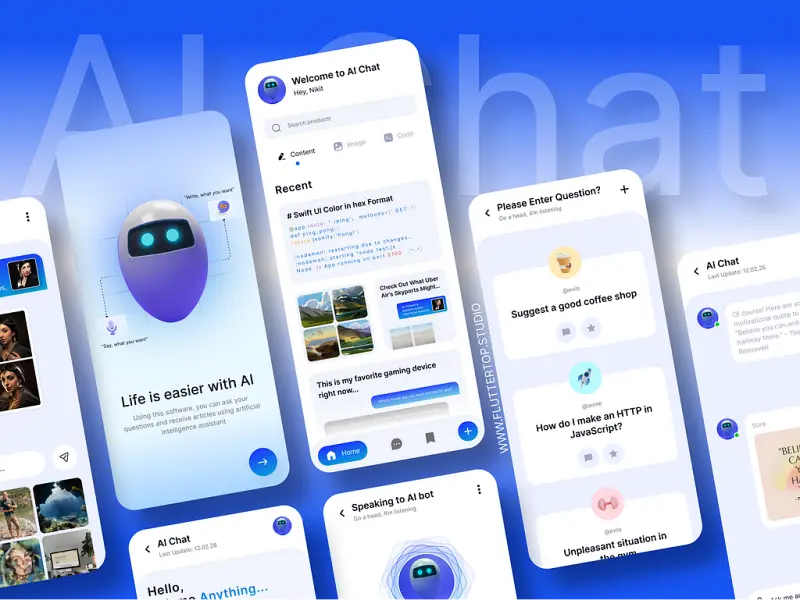
AI chatbot healthcare
Mitigating AI Hallucinations
Training AI chatbots is a meticulous process aimed at avoiding AI hallucinations—instances where the AI presents false information as fact. Such errors can have serious consequences, including harm to patients and damage to the healthcare provider’s reputation. Therefore, it is crucial to thoroughly train AI chatbot in healthcare and account for biases before their deployment in the healthcare sector. Rigorous testing and continuous monitoring are essential to ensure the chatbot’s reliability and accuracy.
Addressing Privacy Concerns
Healthcare data is exceptionally sensitive, and patients may be hesitant to share their information with an AI chatbot. Ensuring that your chatbot’s messaging system is secure and compliant with local regulations is vital to address these privacy concerns. Implementing robust encryption methods and adhering to HIPAA (Health Insurance Portability and Accountability Act) standards can help protect patient data and build trust in the chatbot’s use. Clear communication about data protection measures can also reassure patients about the safety of their information.
V. The Future of AI Chatbot for Healthcare
Despite the current proliferation of healthcare chatbots, there is still some resistance to adopting more complex use cases. This hesitation stems partly from the reality that conversational AI in healthcare is still in its infancy and has significant room for development. As natural language comprehension and artificial intelligence advancements continue, we can expect more sophisticated chatbot solutions to emerge.
While medical chatbots will undoubtedly become more accurate, accuracy alone will not suffice for their widespread acceptance in the healthcare industry. Since healthcare is a blend of empathy and treatments, chatbots must strike a similar balance to be successful and widely accepted in the future.
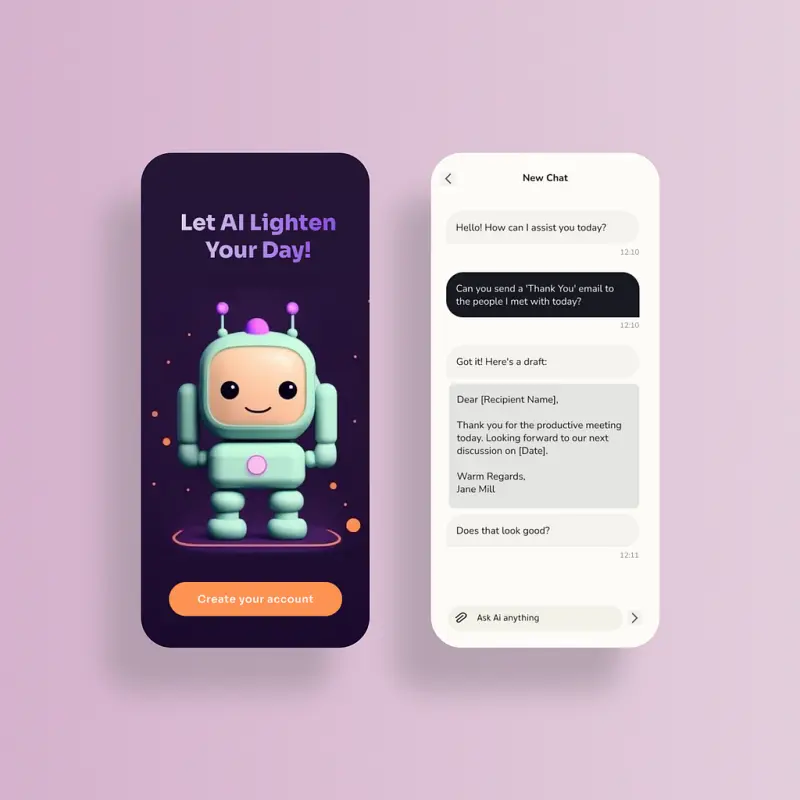
AI chatbot for healthcare
In the coming years, we anticipate that medical chatbots will meet the following expectations:
-
Providing Continuous Companionship: Chatbots will offer patients constant companionship, monitor their health status in real-time, and automatically request aid during crises.
-
Managing Chronic Conditions: They will assist in managing chronic illnesses, mental health issues, and behavioral and psychological disorders, providing ongoing support and monitoring.
-
Proactive Symptom Identification: In scenarios where early detection is crucial, chatbots will proactively identify symptoms, cross-reference them with patients’ medical histories, recommend the next course of action, and potentially increase the success rate of treatments.
-
Facilitating Self-Care: Chatbots may simplify self-care and guide patients in managing their health more effectively by serving as virtual assistants and providing prompt medical advice.
The future of medical AI chatbot looks promising as they evolve to meet these expectations, blending technological advancements with the empathetic aspects of healthcare.
Conclusion
Incorporating medical AI chatbot into healthcare and pharmacy services is undeniably a complex and critical task. The potential for errors and the sensitive nature of patient information make it essential to ensure these systems are meticulously designed and implemented. However, when executed correctly, AI chatbots can significantly boost patient care, simplify operations, and increase overall efficiency in the healthcare sector.
If you’re looking to use AI chatbots for your healthcare or pharmacy services, look no further. TECHVIFY offers top-notch expertise in AI chatbot development, ensuring your systems are both innovative and secure.
Ready to transform your patient interactions and simplify your healthcare services? Get in touch with TECHVIFY today for the best advice and AI chatbot development services! Let’s talk about how we can help you stay ahead in the ever-changing healthcare world.
TECHVIFY – Global AI & Software Solutions Company
For MVPs and Market Leaders: TECHVIFY prioritizes results, not just deliverables. Reduce time to market & see ROI early with high-performing Teams & Software Solutions.
- Email: [email protected]
- Phone: (+84)24.77762.666





